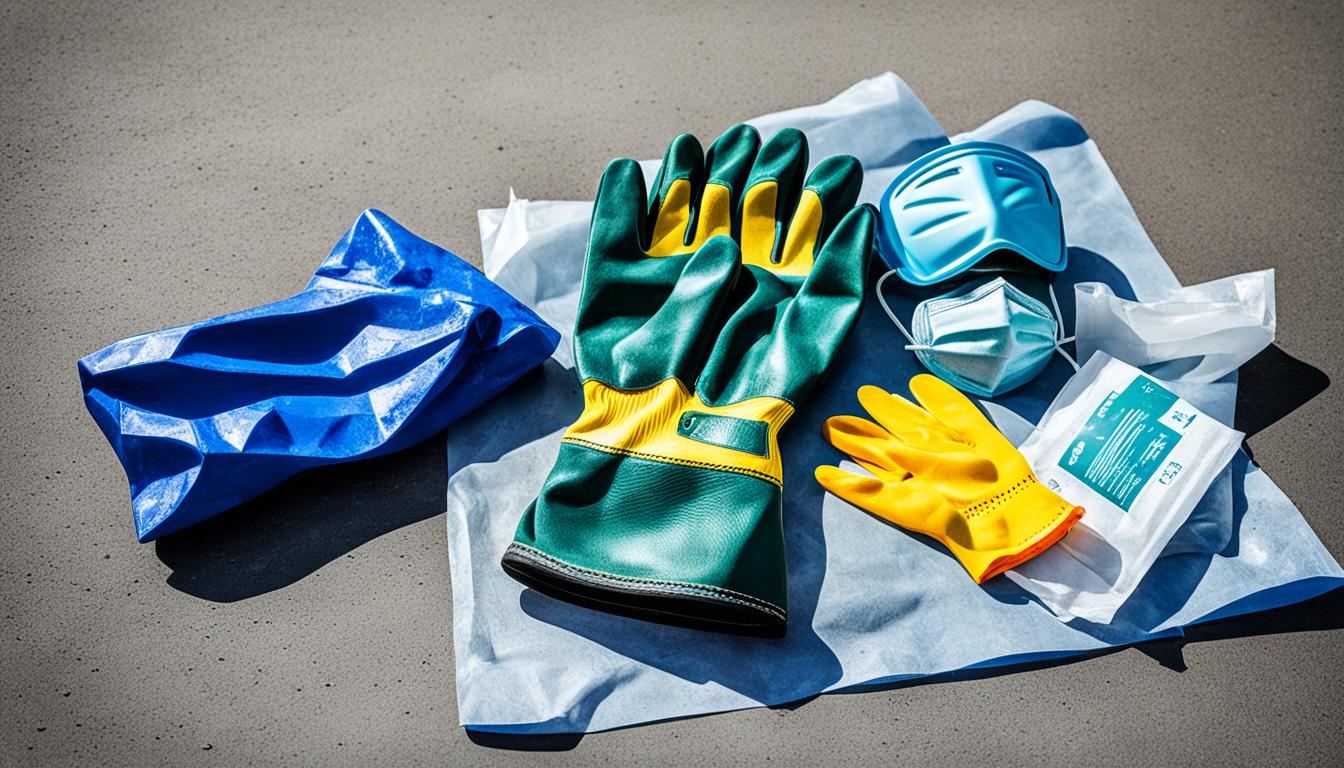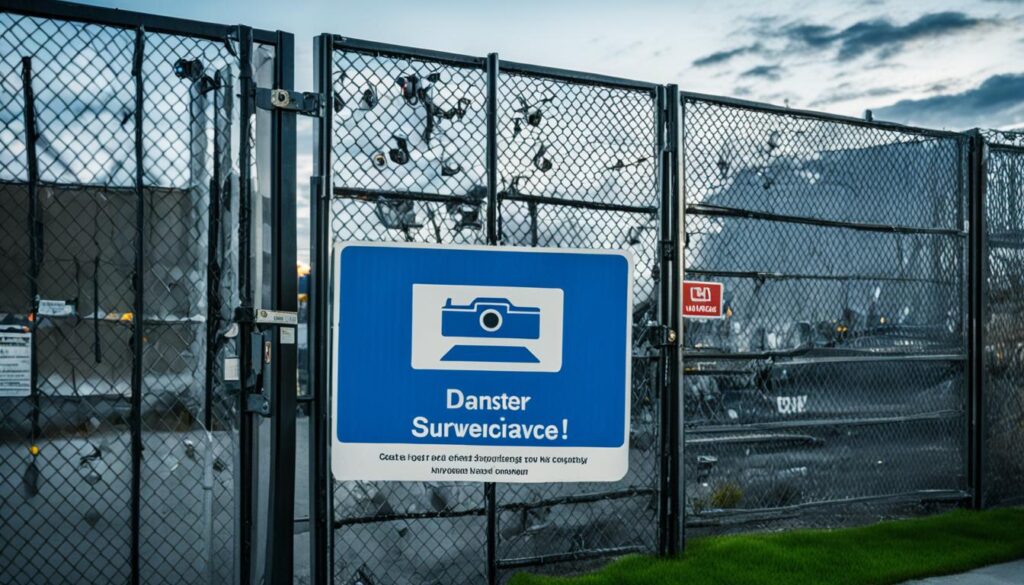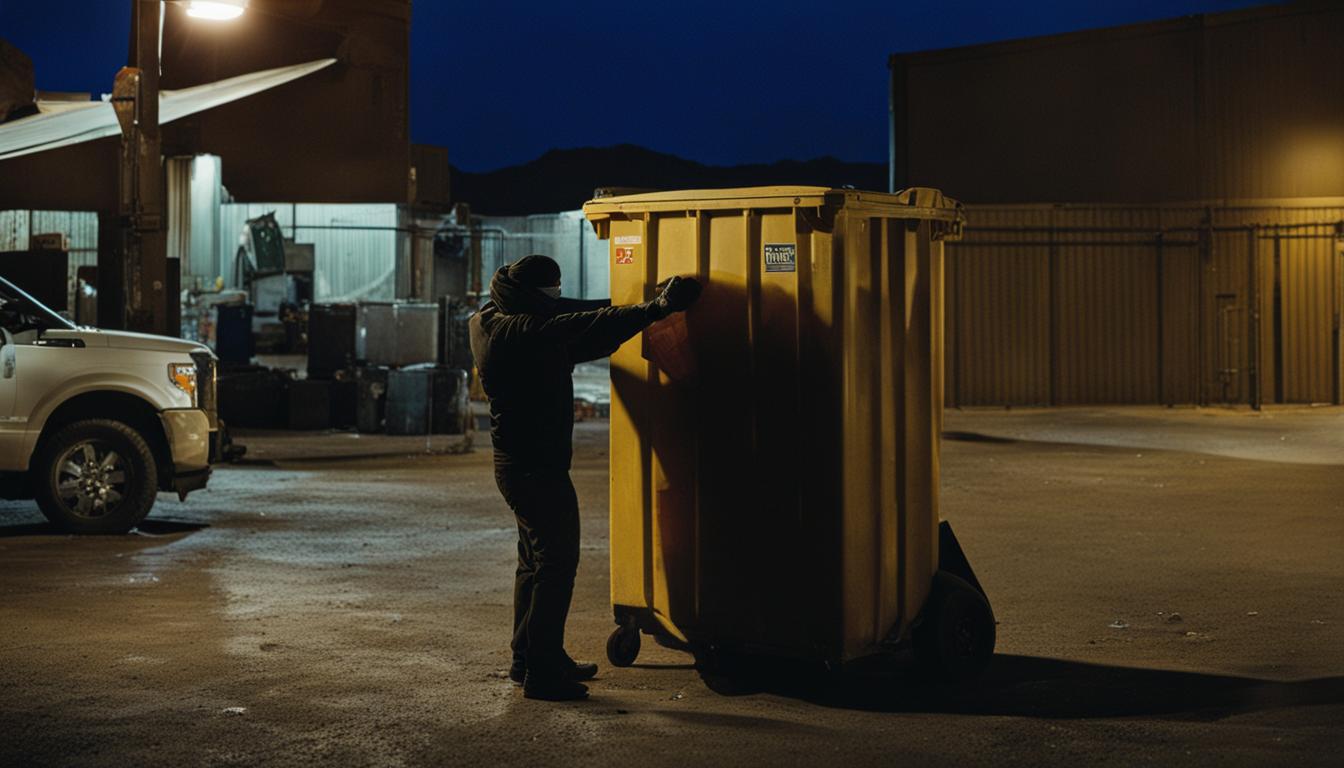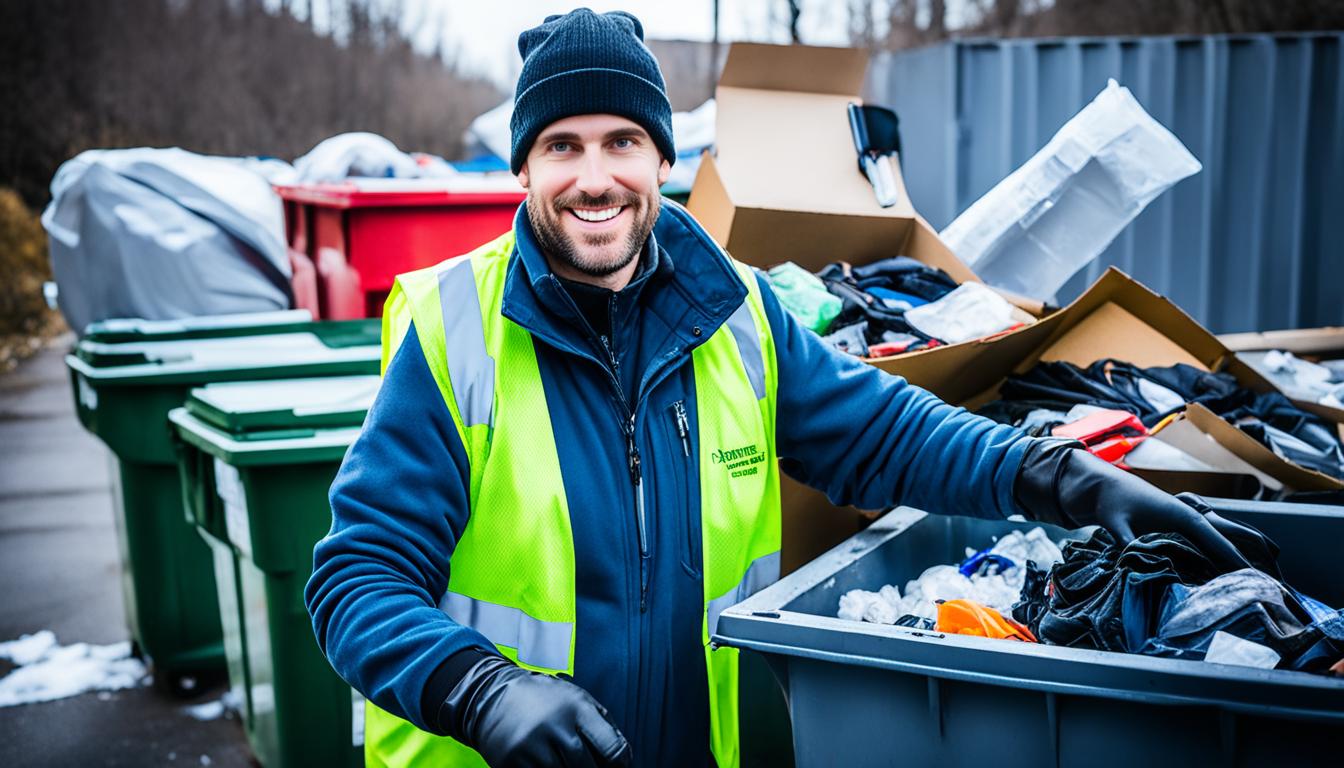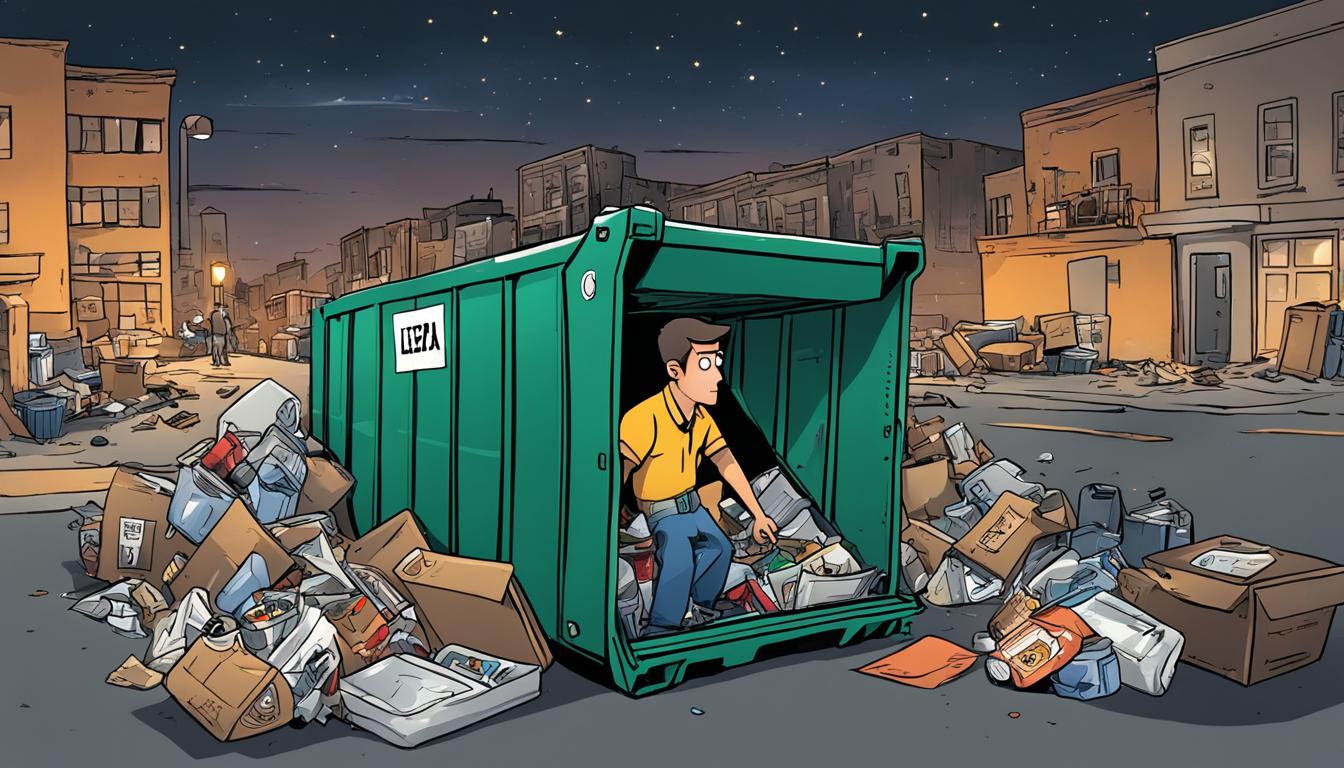Disclosure: This Post Contains Affiliate Links; We earn a commission on purchases.
Dumpster diving can be a thrilling and rewarding activity, but it’s essential to prioritize your safety. By taking certain precautions and using the right safety equipment, you can ensure a safe and enjoyable diving experience.
When it comes to safety essentials, it’s important to invest in the right equipment. Essential safety equipment includes gloves and protective clothing to shield yourself from potential hazards such as sharp objects or unsanitary waste. Workplace safety products and gear such as hard hats, safety glasses, and reflective vests can provide additional protection during your dives.
Following safety protocols and taking necessary precautions is crucial to minimize the risks associated with dumpster diving. Be sure to familiarize yourself with the local laws and regulations surrounding the activity. Understanding the legal risks, including potential offenses such as trespassing or invasion of privacy, can help you navigate your dives without any trouble.
In addition to legal considerations, scoping out the dumpster locations in your area is vital. Research the trash pickup times and target locations such as urban neighborhoods, schools, churches, parks, and beaches where you are more likely to find discarded treasures. Planning your dives during these times and places can increase your chances of finding valuable items.
Knowing what to look for is another key aspect of successful dumpster diving. Keep an eye out for items such as designer clothing, valuable scrap materials, electronics, beauty products, furniture, and appliances. Being aware of the types of items commonly found in different locations can help you focus your search and make the most out of your dives.
Before diving into dumpsters, it’s essential to prepare yourself mentally. Dumpster diving can be a messy and sometimes unpleasant experience, particularly for those with weak stomachs or who are sensitive to smells. Remind yourself of the purpose behind dumpster diving and the potential for reducing waste as you mentally prepare for your dives.
Dressing appropriately and equipping yourself with useful gear is also crucial for a safe diving experience. Wear protective clothing, including gloves and sturdy footwear, to safeguard yourself from potential hazards. Bring a flashlight or headlamp for visibility, a stepping stool for easier access to dumpsters, and a spacious container to store your findings.
Lastly, staying vigilant and leaving no trace are essential principles to abide by when dumpster diving. Be aware of your surroundings, watch out for onlookers or business owners, and promptly leave if you feel unsafe. Keep the areas clean by returning any items you’ve removed from the dumpster and cleaning up nearby trash before leaving.
Key Takeaways:
- Invest in essential safety equipment, including gloves and protective clothing.
- Familiarize yourself with local laws and regulations to avoid legal trouble.
- Scope out dumpster locations in your area and plan your dives accordingly.
- Know what items to look for in different locations to maximize your finds.
- Prepare yourself mentally for the messy nature of dumpster diving.
Familiarize Yourself with Local Laws and Risks
Before embarking on your dumpster diving adventures, it is crucial to familiarize yourself with the local laws and understand the legal risks involved. While dumpster diving itself is not typically considered theft, there are other offenses that you could potentially face, such as invasion of privacy, trespassing, or vagrancy. It is important to be aware of what you could be charged with in your area in order to avoid any legal trouble.
Additionally, be mindful of any signs, fences, or locks that indicate a location is off-limits. Respect private property and avoid diving in areas that are under tight scrutiny to ensure your safety and avoid legal consequences.
“Understanding the local laws and minimizing legal risks is essential for a smooth and enjoyable dumpster diving experience. By being knowledgeable and respectful, you can navigate the legal landscape with confidence.”
Know Your Rights and Responsibilties
It’s essential to know your rights and responsibilities as a dumpster diver. While laws regarding dumpster diving can vary from one jurisdiction to another, some general principles apply in many places. These principles include:
- Obtaining explicit permission before entering any private property or diving in commercial dumpsters owned by businesses.
- Not causing any damage or leaving any mess behind.
- Respecting the privacy of others and refraining from trespassing on restricted areas.
- Being aware of specific regulations related to waste management and disposal in your locality.
- The image below illustrates the potential legal risks involved in dumpster diving:
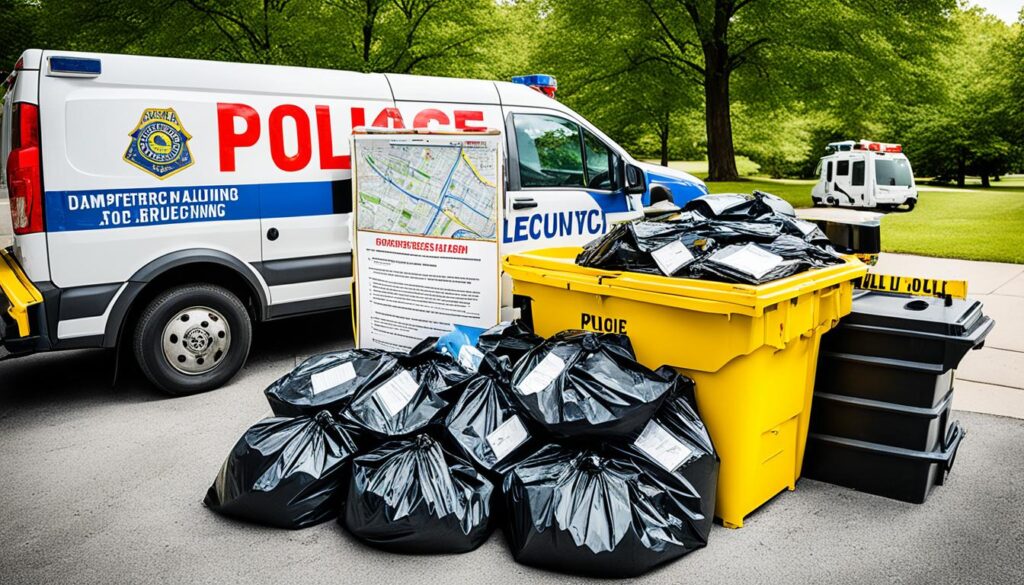
| Legal Risks | Description |
|---|---|
| Theft | Diving in dumpsters without permission may be considered theft in some jurisdictions. |
| Invasion of Privacy | Diving on private property or in areas of restricted access can lead to charges of invasion of privacy. |
| Trespassing | Entering private property without permission is considered trespassing and is a punishable offense. |
| Vagrancy | Diving in certain areas, especially if you are homeless, may be interpreted as vagrancy and can result in legal consequences. |
Remember, these legal risks may vary depending on your local laws, so it is essential to research and understand the specific regulations in your area.
Scope Out the Dumpster Locations
To maximize your chances of finding treasures during dumpster diving, it’s essential to scope out the dumpster locations in your area. While major businesses often have trash receptacles, consider expanding your search to include urban neighborhoods, schools, churches, parks, and beaches. Research the trash pickup times in your city to plan your dives when dumpsters are likely to be full before being emptied. It’s also recommended to schedule your runs for early morning or evening hours when fewer people are around to avoid detection.

If you’re new to dumpster diving, understanding where to find potential treasures is vital. While it’s common to associate dumpsters with commercial establishments, there are other locations worth exploring. Urban neighborhoods, schools, churches, parks, and beaches can serve as fruitful sources of discarded items. By broadening your search, you increase your chances of stumbling upon valuable finds. Additionally, researching the trash pickup times in your city will help you plan your dives strategically. By timing your expeditions when dumpsters are likely to be full, you maximize your opportunities for unearthing hidden gems.
One helpful tip for dumpster diving enthusiasts is to schedule their runs during early morning or evening hours. These periods tend to have fewer people around, reducing the risk of detection or interference. Remember, discretion is key, and minimizing your visibility during dives is crucial for a successful expedition.
Know What to Look For
Dumpster diving can be a treasure trove if you know what items to look for. Public trash disposal sites often hold valuable discarded items. Here are some potential treasures you may find:
- Designer clothing: Don’t be surprised if you stumble upon fashionable garments that were casually discarded.
- Valuable scrap materials: Keep an eye out for metal, plastic, and other materials that can be sold as scrap for a profit.
- Electronics: You might come across functioning electronic devices that have been thrown away.
- Beauty products: Behind a cosmetics boutique, you could discover unused or lightly used beauty products.
- Furniture and appliances: Residential areas often have unwanted furniture and appliances near dumpsters.
It’s important to have a basic idea of what types of items are likely to be found in different locations. For example, small electronics may be found near office supply stores, while high-end establishments are more likely to have discarded designer clothing and beauty products. By focusing your search on specific areas and knowing what to look for, your dumpster dives can lead to valuable finds.
Prepare Yourself Mentally
Dumpster diving can be mentally challenging, especially for those who have an aversion to garbage and its associated odors. To prepare yourself mentally, remind yourself of the purpose behind dumpster diving and the potential for helping eliminate unnecessary waste. Take a few moments to collect yourself before setting out and keep in mind that it can be messy work. It’s important to note that dumpster diving may not be suitable for individuals who are faint of heart or have weak stomachs due to the nature of the activity.
Dress Appropriately and Equip Useful Gear
When engaging in dumpster diving, it’s crucial to dress appropriately and equip yourself with useful gear to ensure your safety and enhance your overall experience. Here are some essential tips:
Dressing for Safety and Comfort
Dress in older garments that you don’t mind getting dirty or torn. Opt for comfortable clothing that allows for free movement, enabling you to navigate dumpsters easily. As you’ll be exploring potentially unsanitary areas, wearing pants and tops with long sleeves can help minimize exposure to messes.
Protective Clothing and Sturdy Footwear
Invest in protective clothing to shield yourself from any hazards you may encounter. This can include wearing gloves made of thick, durable material to protect your hands from sharp objects or unclean substances. Additionally, closed-toed shoes or boots with thick soles are essential to safeguard your feet from exposed edges and potential injuries.
Useful Gear to Enhance Your Experience
Equipping yourself with useful gear can significantly improve your dumpster diving adventures. Consider bringing a stepping stool or a milk crate to access taller dumpsters more easily. A flashlight or headlamp will ensure visibility in dimly lit areas, enabling you to search more effectively. Having a spacious container or a backpack to store your findings will help keep them organized and secure during your dives.
Being well-prepared with the right clothing and gear will not only enhance your safety but also provide added comfort and ease during your dumpster diving expeditions.
Stay Vigilant and Leave No Trace
When engaging in dumpster diving, your personal safety should be your top priority. Always remain vigilant and be aware of your surroundings. Keep a watchful eye out for any onlookers, business owners, or even the police. If you spot someone approaching or feel unsafe in any way, it’s crucial to leave the area promptly to protect yourself.
Another important aspect of responsible dumpster diving is leaving no trace. This means returning any items you’ve removed from the dumpster before leaving. Additionally, take the opportunity to clean up any nearby trash, ensuring that you leave the area as clean, or even cleaner, than you found it. By practicing this principle, you not only minimize the risk of getting caught but also contribute to maintaining a positive image of dumpster diving as a responsible activity.
Remember, dumpster diving may be misunderstood by some, so it’s essential to demonstrate respect for private property and the environment. By remaining vigilant and leaving no trace, you can enjoy your dumpster diving adventures while keeping yourself safe and upholding the reputation of the dumpster diving community.
Source Links
- https://www.wikihow.com/Dumpster-Dive
- https://www.thebrokebackpacker.com/dumster-diving-for-dummies/
- https://rubbish-inc.com/10-ways-to-keep-your-identity-safe-from-dumpster-divers/

Subscribe to Our Newsletter

